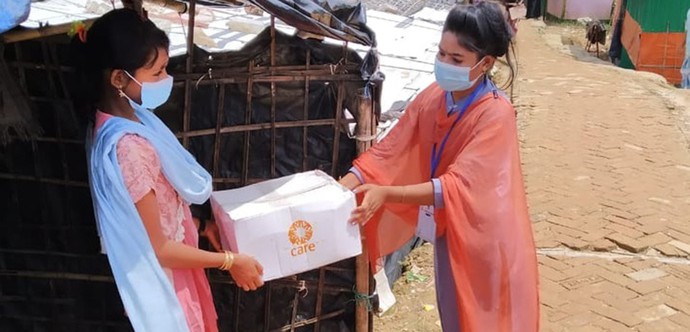COVID-19
Registered Name: CARE CANADA
Business No: 118838333RR0001
This organization is designated by Canada Revenue Agency (CRA) as a registered charity. They comply with the CRA's requirements and has been issued a charitable registration number.

THE SITUATION
The COVID-19 pandemic affects us all. As it spreads to poorer countries, overwhelming weak healthcare systems, we must stand in solidarity with our most vulnerable neighbours. CARE is working with communities to get in front of the crisis and to save lives—but time is of the essence.
Right now is the best—and possibly only—chance to rush supplies and expertise through our existing networks. As the pandemic spikes, it will become much more difficult to reach the most affected people and areas in need.
CARE is moving quickly to help prepare the most vulnerable people around the world—including women, girls and refugee populations—for the coming outbreak. But funding is critically needed to save lives.
CARE'S RESPONSE
Our COVID-19 response draws on CARE’s experience with other health crises such as the fight against Ebola, SARS and cholera providing access to safe water, hygiene kits and hygiene education.
Our strategy—building on existing programming and strong local relationships—includes:
- Having essential supplies like soap, disinfectants, medication and protective wear ready to use and distribute
- Providing clean water and promoting safe hygiene and sanitation, including access to water supplies, storage containers, hand washing stations, etc.
- Educating and empowering caregivers and front line health workers—most of them women
- Communicating accurate information to counter misinformation and rumours
- Providing food and other necessities, particularly in the event of supply chain breakdown CARE’s focus on women and girls is vitally important. Experience tells us that during health crises:
- Women are more likely to be infected, given their roles as caregivers and front line healthcare workers (70% of whom are women)
- Women are less likely than men to have decision-making power, leaving their needs unmet
- Sexual and reproductive health resources are diverted, contributing to higher maternal mortality rates
